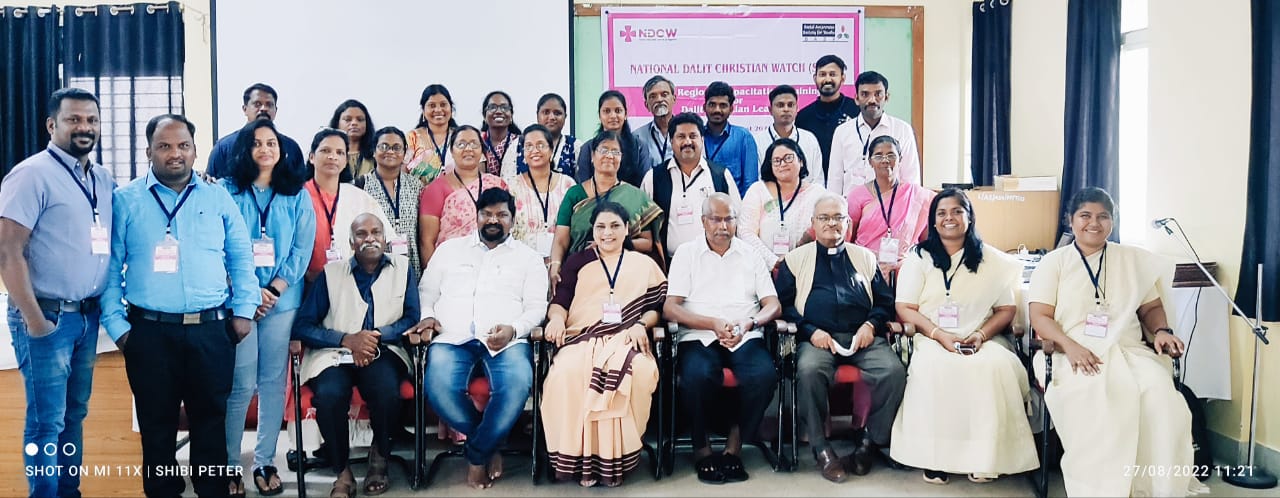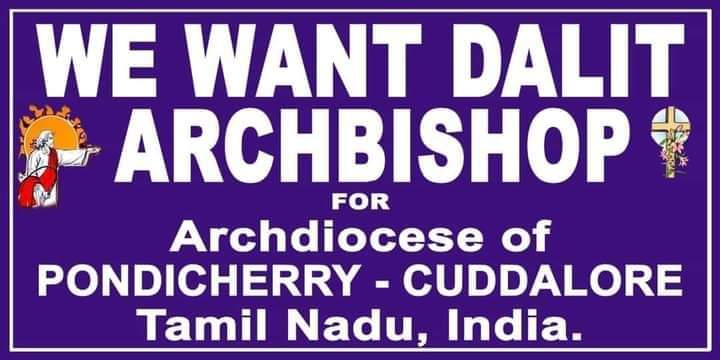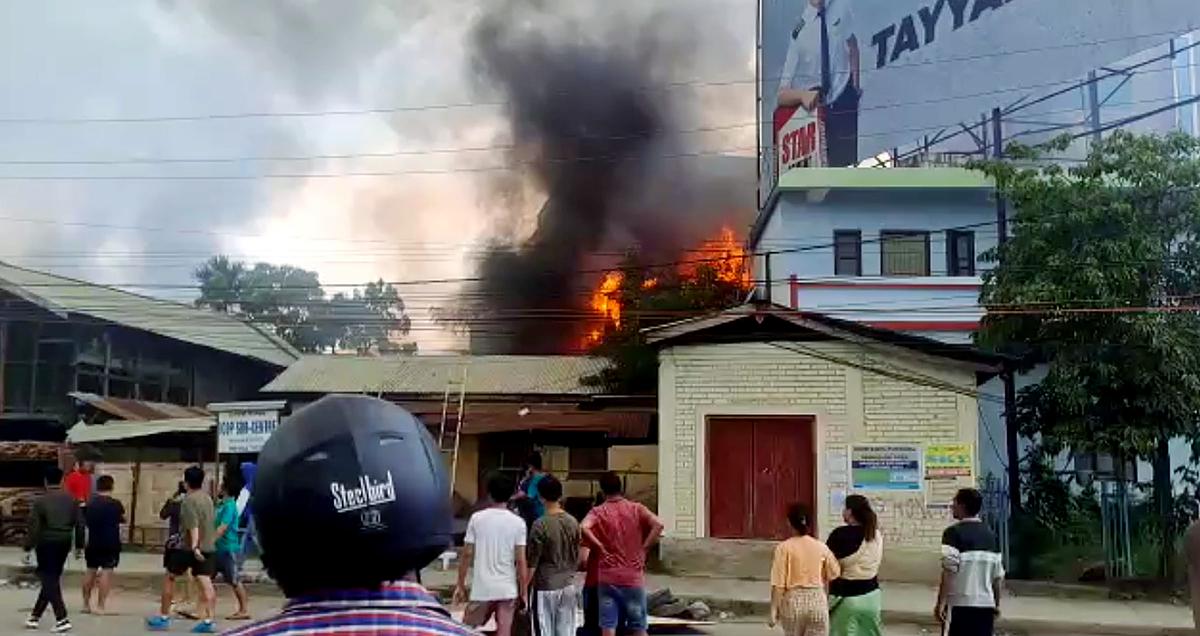By Robancy A Helen
The National Dalit Christian Watch (NDCW) convened a two-day training session for Dalit Christian leaders On August 27–28, 2022, at the Indian Social Institute in Bangalore.
“Christ is the person who manifested himself. Our God is active. We are here to change. The Bible helps us to understand our context and roles,” said Rev. Dr. Manohar Chandra Prasad, a retired pastor and veteran Dalit leader based in Bangalore, while delivering his Biblical reflections in the inaugural session.
During her opening remarks, Sr. Manju Devarappalli, the national secretary of NDCW, said that the objectives of this capacitation training are to involve the Dalit Christians within the churches and the church-based institutions and to enhance awareness, fact-finding issues, and advocacy.
She also suggested capacitating all the Southern Indian state leaders and engaging them to work for the betterment of the Dalit Christians.
The purpose of the meeting was to identify and capacitate the leaders at all levels to address discrimination in the church and society.
Dr. Vincent elaborated on the status of Dalit Christians in the church and society by saying, “Biblically, we must be sound enough to challenge others.”
The National Dalit Christian Watch is contextual. Dalitism means anti-casteism. Casteism leads to untouchability. The UN identifies 140 forms of discrimination. Though there are 540 Members of Parliament in India, there are only 190 Dalit MPs. In Tamil Nadu, out of 234 MLAs, the Dalit number is only 44.
“To be Dalit Christian activists, we need to capacitate ourselves, know everything, and explore everything,” said Dr. Vincent. He also quoted Dr. Ambedkar, saying, “Give us the opportunity, and we will excel.”
He encouraged the delegates by sharing his own experience as Marxist, Ambekarite, Dalit activist, Dalit Christian activist, human Right Defender and a lawyer.
The NDCW envisions a casteless church and society. We need to have articulation capacity. Let us expel caste from the church and society because Christ and caste cannot coexist.
The delegates then went into groups and discussed the focal issues of Dalit Christians in the Church and society, and then presented their reports as they experienced dual cemeteries, dual hearse carts, and discrimination in the hierarchy and the religious vocation.
Mr. Shibi Peter, the national coordinator of NDCW, shared the current involvement of NDCW.
The five-year-old campaign mode organization works as a watchdog to address caste discrimination in the church and society.
He explained the importance of documentation, fact-finding, public hearings, national advocacy, and Scheduled Caste status.
Sr. Robancy A Helen, Dalit Christian Digest coordinator, briefed on the struggle in Tamil Nadu for Dalit bishops, the fact-finding mission in Tamil Nadu, the Indian Dalit Rite, and the Dalit Christian Digest.

She encouraged the delegates to become the reporters of DCD and to equip themselves as freelance journalists.
Sr. Manju briefed participants about the Universal Periodic Review and the involvement of NDCW in the process.
Fr. Selvin, a Jesuit priest who heads the Labour and Migration department in ISI, shared his ministry and invited the participants to participate in his mission.
Fr. Joseph Xavier, the Director of ISI, was invited to greet the delegates. He said, “We need a reality check. Capture the aspirations of the people and make the Church committed. No journey will be completed in our lifetime, but we need to take the struggle forward.”
“As Dr. Ambedkar says, we need to pull the cart of liberation. If we can’t pull it forward, we make sure that the cart stays there, but never pull it down,” he added.
“It gives the deep inner joy of contributing to this world. The ultimate joy is to lay down our lives for others,” he added.
There were 30 delegates representing Andhra Pradesh, Kerala, Karnataka, Pondicherry, Tamil Nadu, and Telangana.
The leaders will carry out the mission to address caste discrimination in the church and society and involve themselves in state advocacy.










